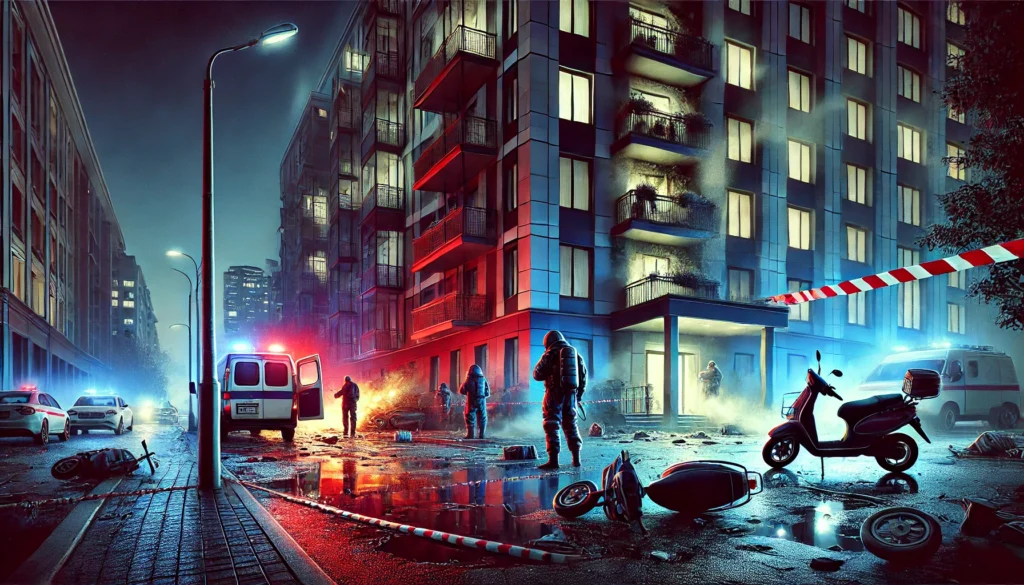Dec 17, 2024
Russian Nuclear Defense Chief Killed in Moscow Bomb Blast: Targeted Attack Raises Questions of Retaliation
Topline
Lieutenant General Igor Kirillov, the head of Russia’s nuclear, chemical, and biological weapons defense forces—recently accused by Ukraine of deploying banned chemical weapons—was killed in a targeted bomb blast outside a Moscow apartment building on Tuesday.
Key Facts
- Explosion Details: According to Russian state-run TASS news agency, Kirillov and his aide were killed when a bomb hidden in a scooter exploded near the entrance of a residential building as they exited.
- Investigation Findings: Russian investigators confirmed the bomb was detonated remotely and positioned to specifically target the apartment entrance Kirillov used. The explosive device had an estimated power equivalent to 300 grams of TNT.
- Terrorist Attack: Authorities are treating the killing as a terrorist act, though no suspects have been officially named. A criminal investigation is underway.
Was Ukraine Behind the Attack?
- On Monday, Ukraine’s Security Service (SBU) convicted Kirillov in absentia for alleged war crimes, accusing him of deploying banned chemical weapons against Ukrainian forces in the eastern and southern warfronts.
- While the SBU has not officially claimed responsibility for Kirillov’s death, a Ukrainian law enforcement official anonymously told Politico that the agency was involved. “Kirillov was a war criminal and an absolutely legitimate target since he gave orders to use banned chemical weapons… Retribution for war crimes is inevitable,” the source said.
- A similar statement was echoed to CBS News, implying that the attack was part of broader retaliation efforts against Russian military leaders implicated in alleged war crimes.
Key Background
- Sanctions and Accusations: Kirillov had been sanctioned by the U.K. government in October for alleged chemical weapons use against Ukrainian forces. Under these sanctions, he faced a travel ban and asset freeze. The U.S. also added Kirillov’s Radiological, Chemical, and Biological Defense Troops to its list of sanctioned entities.
- Chemical Weapons Allegations: Western governments accused Kirillov and the Russian military of using chloropicrin, a banned chemical weapon, on Ukrainian battlefields in violation of the Chemical Weapons Convention.
- Kremlin Disinformation: The U.K. Foreign Office further accused Kirillov of being a “mouthpiece for Kremlin disinformation,” spreading propaganda to obfuscate Russia’s alleged use of chemical weapons.
Implications
Kirillov’s assassination comes amid escalating tensions in the Russia-Ukraine conflict and a growing pattern of targeted strikes on high-profile Russian officials. While the attack raises questions about Ukraine’s involvement, it also underscores the ongoing international scrutiny of Russia’s alleged war crimes.
This targeted killing may deepen tensions between Russia and Ukraine, drawing further global attention to the humanitarian and geopolitical consequences of the ongoing war.

